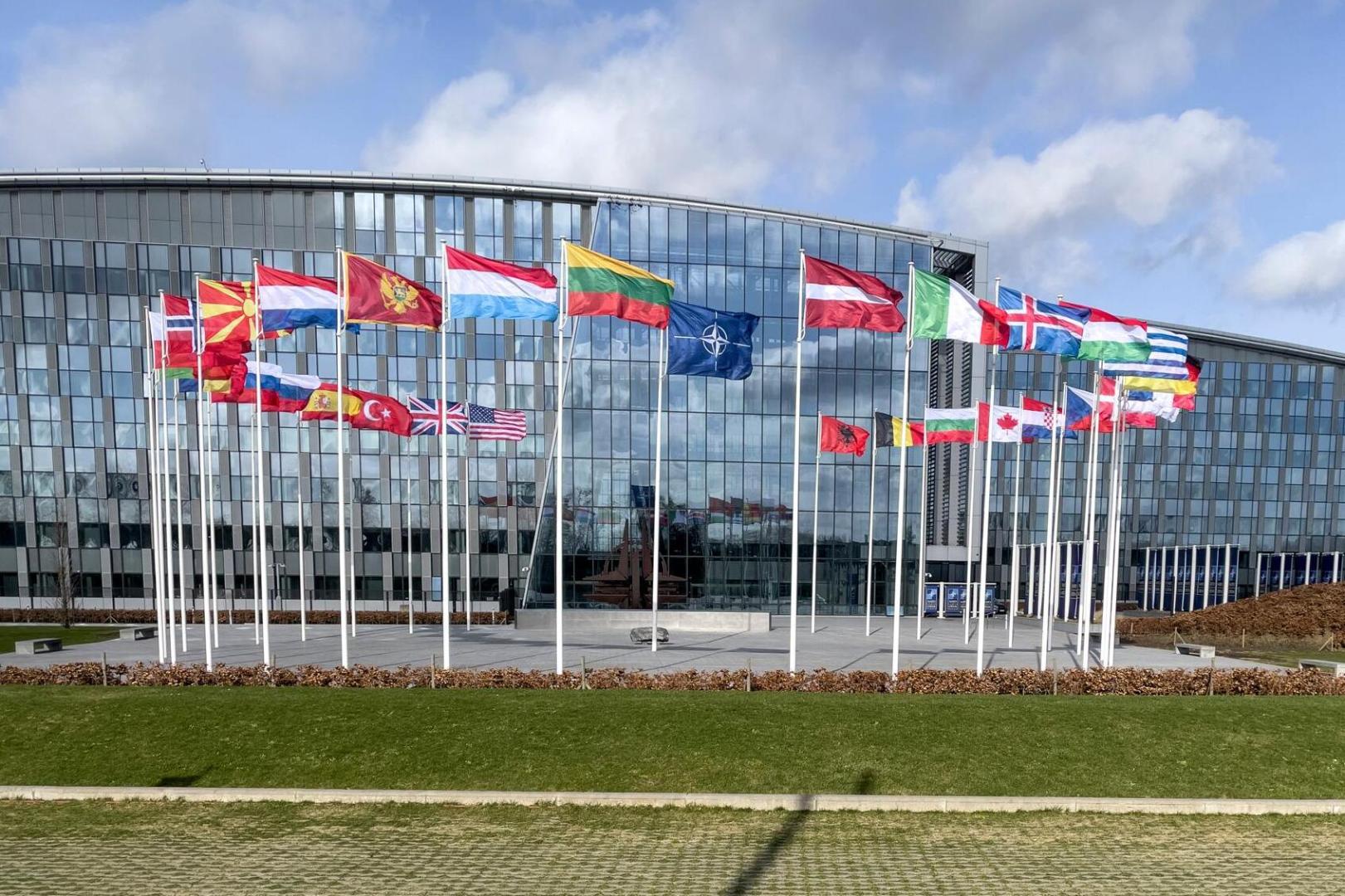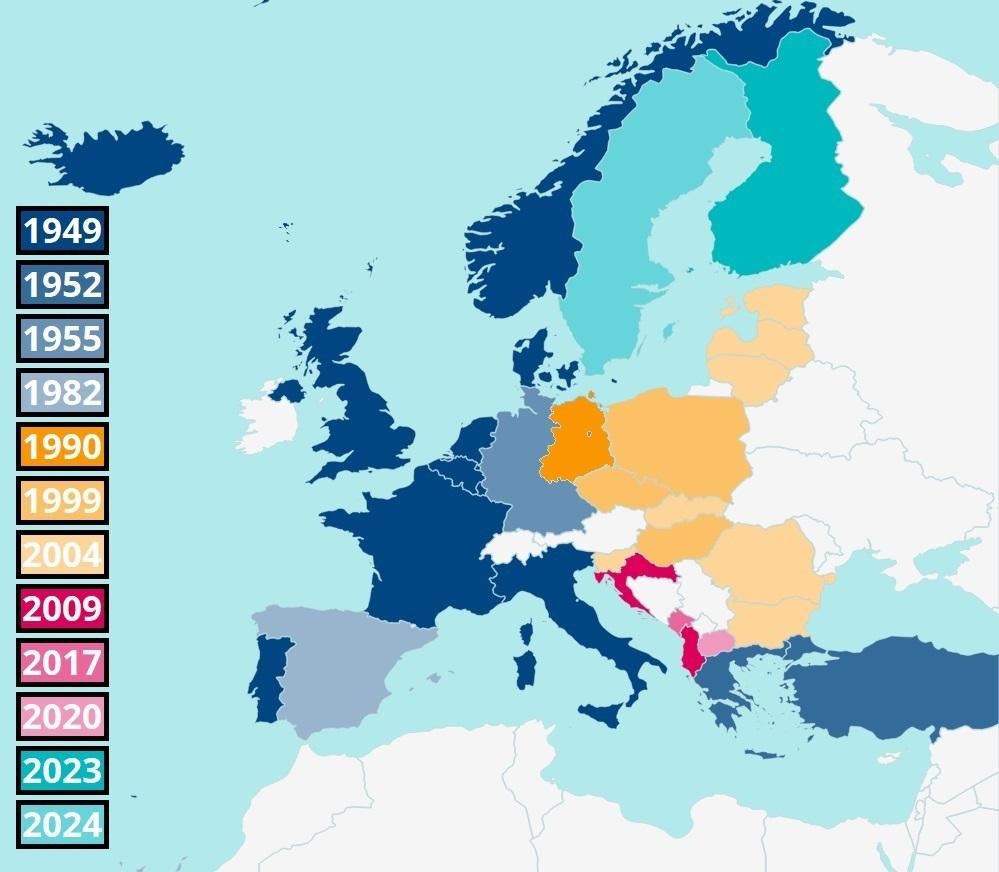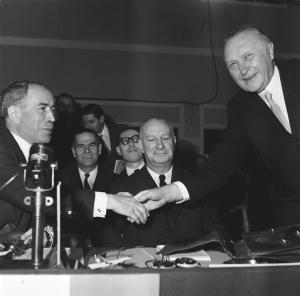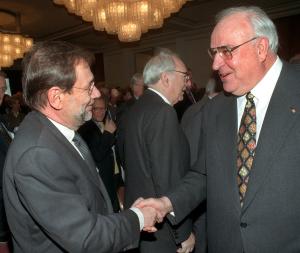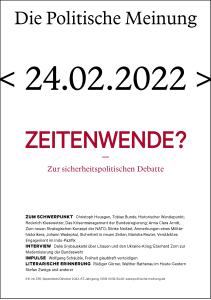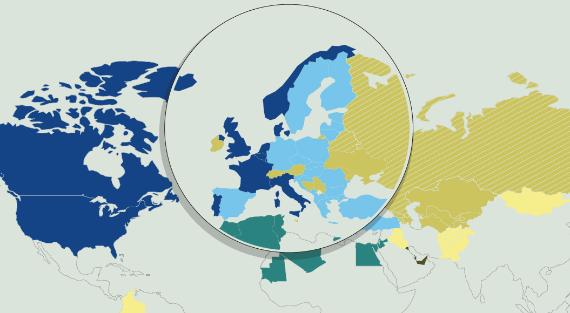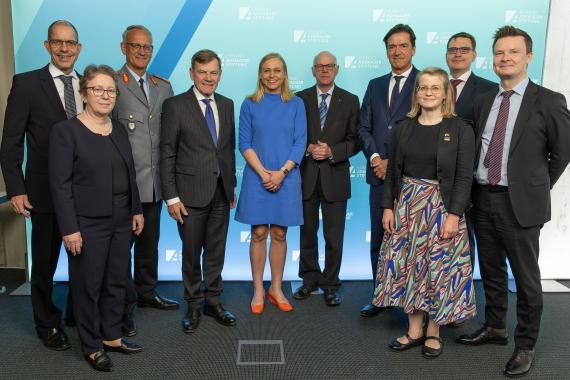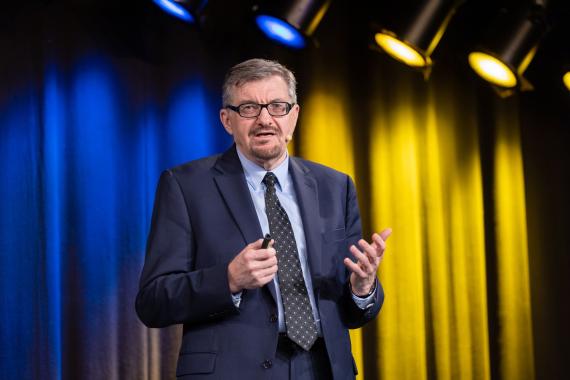Asset Publisher
75 years of NATO
The North Atlantic Treaty Alliance at a critical juncture
Asset Publisher
At a glance
- To this day, NATO membership is one of the most important pillars of German security and defence policy.
- NATO was primarily a response to the USSR's expansionist ambitions towards Western Europe after the Second World War. Its mission was deterrence and defence of the Alliance's territory.
- After the end of the Cold War and NATO's eastward expansion, NATO fell into a crisis of purpose and sought a new direction in its defence policy with international crisis missions.
- The Russian war of aggression against Ukraine has manifested the relevance of NATO again. It has greatly accelerated reforms that had already been initiated and shifted the focus on the Alliance´s actual core tasks.
- The challenges for the alliance are great. Military capabilities must be expanded to include the dimensions of space and cyberspace. Also, climate change is high on the agenda.
Content
3. Breach of international Law in 2014
4. “Zeitenwende” or the 2022 Watershed Moment of Security Policy
5. The US and the Transatlantic Defence Alliance
8. Publications, events and media contributions on the topic
NATO celebrates its 75th anniversary in 2024. We are taking this as an opportunity to honour the historical role of the alliance in maintaining peace in Europe. Our activities and publications will shed light on current and future developments in the Alliance and discuss present challenges, also against the backdrop of Russia's war of aggression against Ukraine.
Return to the Core Mission: NATO returns to Deterrence and Defence
In the 75th year of its existence, the North Atlantic Treaty Alliance has returned to its core mission: deterrence and defence of a territorial aggressor. Founded on 4 April 1949, NATO was primarily a response to the Soviet Union's expansionist ambitions and military superiority over Western Europe after the Second World War. On 9 May 1955 - ten years after the German capitulation - Chancellor Konrad Adenauer signed the Federal Republic's certificate of accession to the North Atlantic Treaty Organisation in Paris. To this day, NATO membership is an important - if not the most important - cornerstone of German security and defence policy. Remarkably, the Bundeswehr was founded on 12 November 1955, six months after Germany joined NATO! The Bundeswehr has therefore been involved in NATO's multilateral cooperation from the very beginning.
NATO Throughout History: Searching for Meaning after the Cold War and Eastward Enlargement
Here, the history of the alliance touches on and is conditioned by current developments: After the end of the Cold War, there was a change in NATO's defence policy orientation away from deterrence and towards international crisis management in the 1990s.
After the end of the systemic rivalry with the socialist Eastern bloc and NATO's eastward expansion in 1999, the alliance entered a phase of searching for meaning. Criticism of the alliance culminated in the memorable accusation by the French president in 2019 that NATO was "brain-dead". One of the reasons for this statement was the attitude of the United States of America: no US president before Donald Trump had criticised the alliance so openly and thus damaged its reputation as much as the 45th President of the United States (2017 - 2021).
Breach of International Law in 2014: Start of the Most Comprehensive Reforms in NATO History
Russia's annexation of the Ukrainian peninsula Crimea in violation of international law in 2014 marked the beginning of the biggest adjustment process in NATO's history. The Central and Eastern European allies in particular recognised the danger posed by the Russian Federation - after the Russian attack on Georgia in 2008, some had already warned the Alliance of their neighbour's imperialist ambitions and the threat to the European defence architecture. This assessment, however, was not shared equally by all the populations of the NATO member states - but certainly by all NATO representatives at the Brussels headquarters.
“Zeitenwende” or the 2022 Watershed Moment of Security Policy: No More Questioning of the Alliance’s Relevance
The full-scale invasion by Russia on 24 February 2022 and the ongoing war against Ukraine since then have accelerated internal reforms tremendously and made the relevance of the Alliance painfully clear even to the last - i.e. Western - allies. NATO's Strategic Concept of June 2022 recognises this new, old threat to the Alliance. NATO's defence planning will be reviewed for its resilience before the 75th NATO Summit in Washington D.C. from 9-11 July 2024. There are also a number of potentially impactful political events in 2024.
Cyprus: Between NATO accession and regional tensions
YiasasAdenauer Podcast, Episode 24
(only in German)
open.spotify.com
The US and the Transatlantic Defence Alliance: Europe Must Share More of the Burden
The most important of these is the US presidential election on 5 November 2024, in which a victory for the Republican Party could have a significant impact on support for Ukraine and also on NATO. The European partners, and Germany in particular, must take on more responsibility in the defence alliance.
Germany´s Role in NATO: In Great Need for Adaption and Coordination
Germany has a central role to play, not least due to its geographical location. In an emergency, tens of thousands of troops will have to be deployed from and through Germany to the Alliance's borders in order to provide defence support in the shortest possible time. This poses demands not only on German infrastructure and administrative processes, but also on personnel, material, and finances, for which both the Bundeswehr must be upgraded, and the reservist system revitalised. Civilian emergency services such as the Federal Agency for Technical Relief (THW), police, fire brigade and rescue services must be able to work hand in hand with the Bundeswehr in such a scenario.
NATO’s Current Challenges: Space, Cyber, Climate Change – Big Tasks, Small Budget
There are also other topics on the agenda that will keep NATO busy until the Washington Summit and beyond: NATO, for example, has taken up the cause of the effects of climate change as a centrally important topic area. In addition to the traditional dimensions of land, air and sea, the dimensions of space and cyberspace have been added to NATO's classic fields of operation in recent years. In addition, Critical infrastructure must be effectively protected.
The tasks are huge, time is short, and budgets are fiercely contested - there is a lot to discuss in NATO's 75th year.
Feel free to contact us if you have any questions or suggestions on the subject of Germany's role in NATO!
Asset Publisher
Asset Publisher
Asset Publisher
Publications on this topic
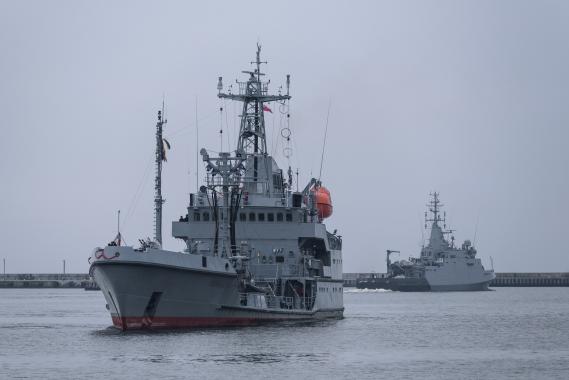 Adobe Stocke / Wojciech Wrzesień
Adobe Stocke / Wojciech Wrzesień
Critical Junctures – The Future of the North
Latest development in the Baltic Sea Region
-
Nick Childs, Ferdinand Alexander Gehringer, James Hackett, Fenella McGerty
-
June 21, 2024
-
Monitor
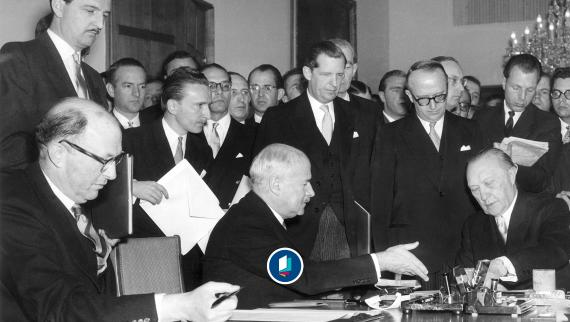 picture alliance / Bernhard Frye
picture alliance / Bernhard Frye
Westintegration als Erfolgsfaktor
Konrad Adenauer und die Einbindung der Bundesrepublik Deutschland in den Westen
-
Prof. Dr. Marie-Luise Recker
-
May 16, 2024
-
Essay
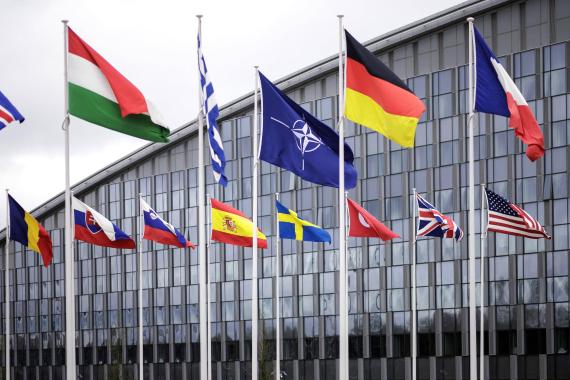 MAGO / photothek
MAGO / photothek
NATO Anniversary 2024 – 75 Years of Collective Defence
The stakes are high before the Alliance’s anniversary summit from 9 to 11 July in Washington D.C. - what is now required of the member states
-
Christina Bellmann
-
April 4, 2024
-
Monitor
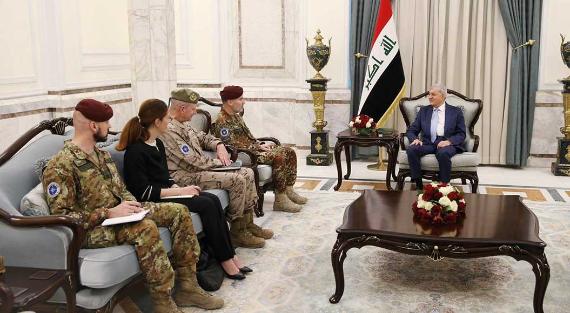 Iraqi Presidency Office, Zuma Press, picture alliance
Iraqi Presidency Office, Zuma Press, picture alliance
Looking in All Directions
NATO Mission Iraq and the Alliance’s Role on Its Southern Flank
-
Lucas Lamberty
-
April 2, 2024
-
International Reports
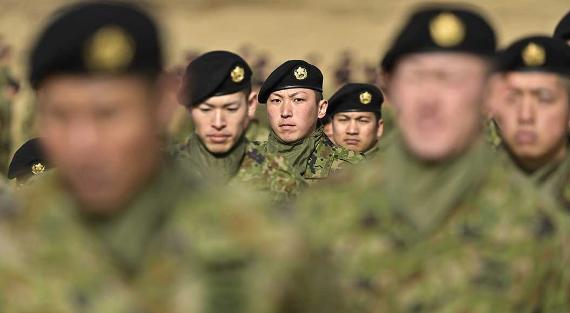 David Mareuil, Anadolu, picture alliance
David Mareuil, Anadolu, picture alliance
Japan-NATO Alignment
Fostering Cooperation and Strategic Synergies
-
Stephen Nagy
-
April 2, 2024
-
International Reports
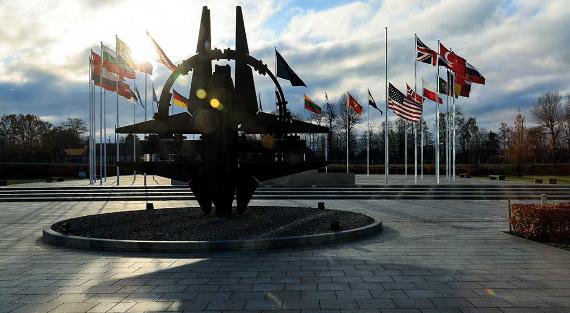 Geert Vanden Wijngaert, AP, picture alliance
Geert Vanden Wijngaert, AP, picture alliance
Gradually, Then Suddenly
Assessing Washington’s Commitments to Europe in a Pre-war World
-
Peter Rough
-
April 2, 2024
-
International Reports
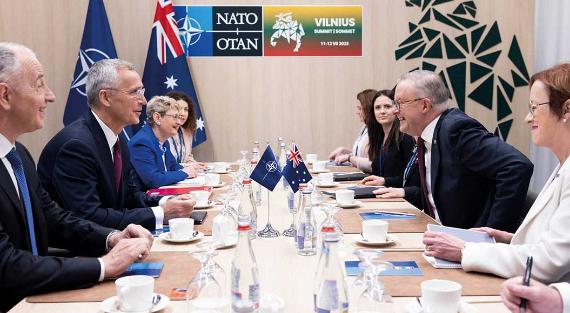 NATO, Abaca Press, picture alliance
NATO, Abaca Press, picture alliance
Family Reunion
NATO and Australia
-
Bertil Wenger, Justin Burke
-
April 2, 2024
-
International Reports
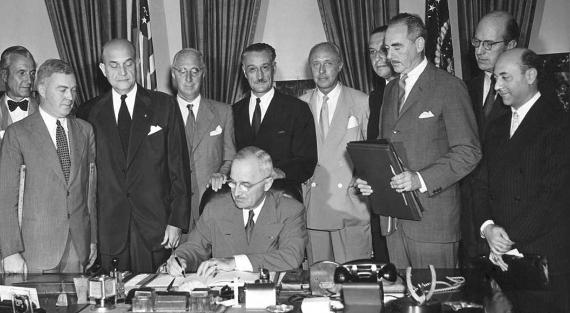 Everett Collection, picture alliance
Everett Collection, picture alliance
Editorial of the issue: "NATO. The Indispensable Alliance"
-
Dr. Gerhard Wahlers
-
April 2, 2024
-
International Reports
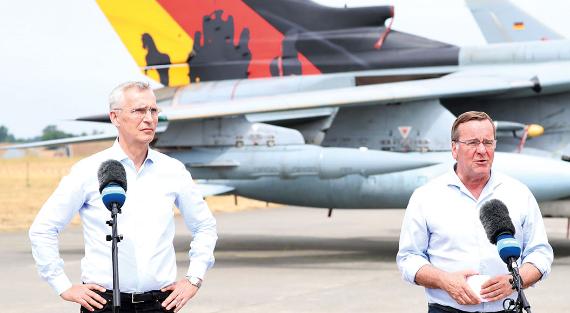 Cüneyt Karadağ, Anadolu Agency, picture alliance
Cüneyt Karadağ, Anadolu Agency, picture alliance
Are We Doing Enough?
German and European Contributions to NATO
-
Christina Bellmann, Alexander Schuster
-
April 2, 2024
-
International Reports
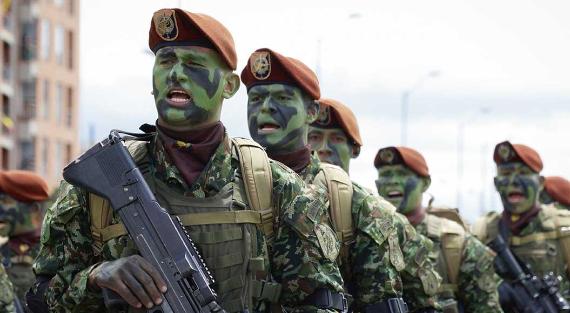 Juan Angel, Zuma Press, picture alliance
Juan Angel, Zuma Press, picture alliance
A Security Partnership with Substance
Colombia as a Global Partner of NATO
-
Stefan Reith
-
April 2, 2024
-
International Reports
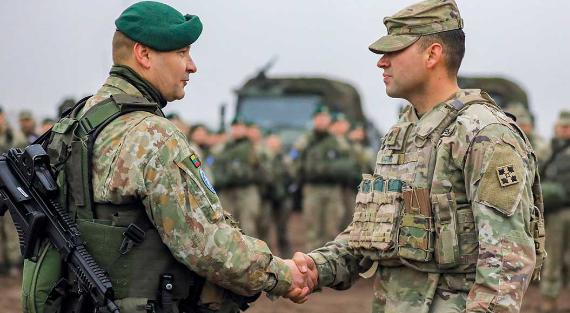 U.S. Army, Cover Images, picture alliance
U.S. Army, Cover Images, picture alliance
“NATO’s Essential Core Is Unconditional Reliability”
An Interview with Ambassador Géza Andreas von Geyr
-
Dr. Sören Soika, Fabian Wagener
-
April 2, 2024
-
International Reports
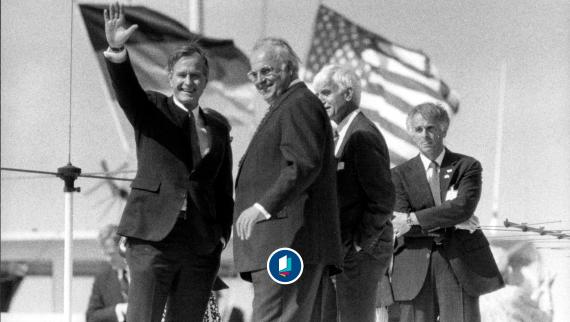 picture alliance/United Archives | Sven Simon
picture alliance/United Archives | Sven Simon
Die Transatlantische Partnerschaft in der NATO im Wandel der Zeit
Rückschau und Ausblick
-
Dr. Karl-Heinz Kamp
-
April 1, 2024
-
Essay
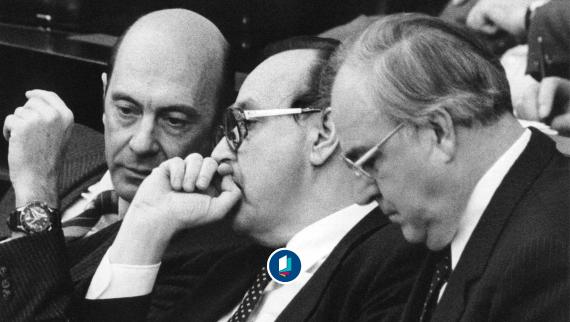 picture-alliance / dpa | Heinz Wieseler
picture-alliance / dpa | Heinz Wieseler
Der NATO-Doppelbeschluss vom 12. Dezember 1979
Seine Folgen für die deutsch-deutschen Beziehungen
-
Prof. Dr. Hermann Wentker
-
April 1, 2024
-
Essay
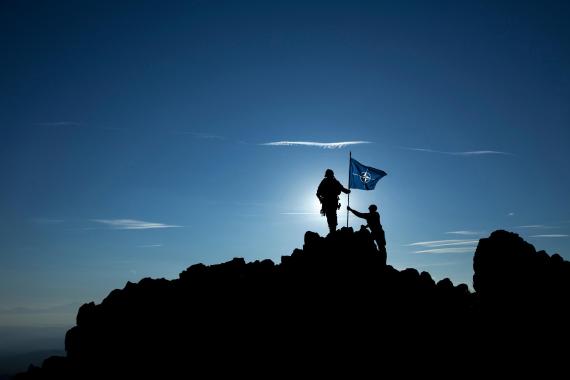 Adobe Stock / vladimirfloyd
Adobe Stock / vladimirfloyd
A lot of news in the East: NATO combat brigades for the Baltic States
6 countries - 2 ways - 1 common purpose: Scaling the trip wire to heavy ordnance
-
Andreas Geyer, Oliver Morwinsky
-
August 21, 2023
-
Country reports
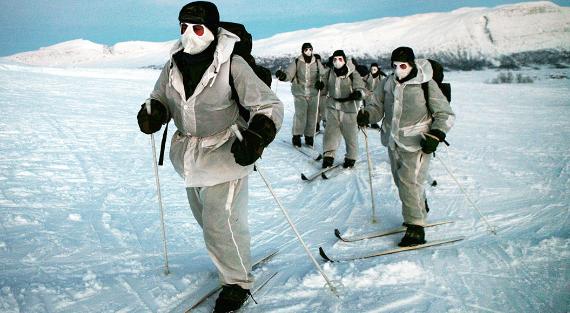 David Cheskin, empics, picture alliance.
David Cheskin, empics, picture alliance.
From Zone of Peace to Hotbed of Conflict?
The Geopolitical Importance of the Arctic
-
Michael Däumer
-
April 18, 2023
-
International Reports
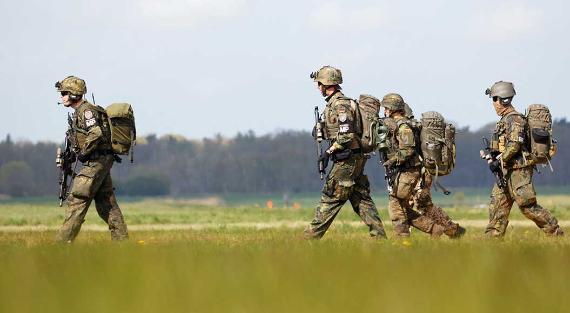 Ludovic Marin, Reuters.
Ludovic Marin, Reuters.
Immer einen Schritt hinterher?
Deutsche Sicherheitspolitik nach dem NATO-Gipfel von Madrid
-
Philipp Dienstbier
-
November 18, 2022
-
International Reports

Mehr als ein reines Militärbündnis
Gründung und historische Entwicklung der NATO
-
Dr. Agilolf Keßelring
-
March 16, 2022
-
Essay



